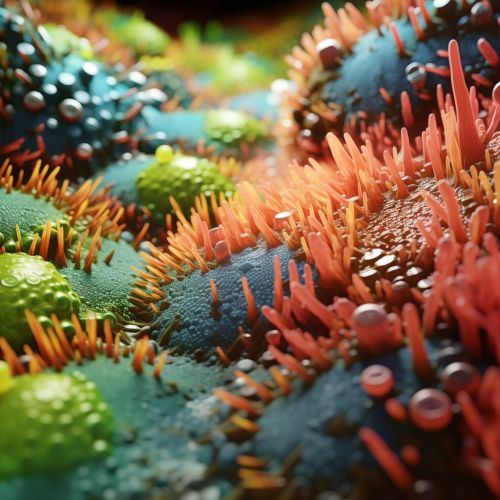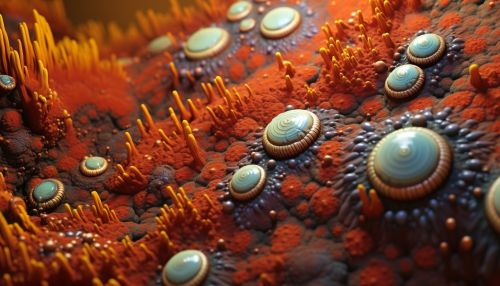Geobacter
Introduction
Geobacter is a genus of proteobacteria that are known for their ability to reduce iron and other metals. They are anaerobic bacteria that are commonly found in soils, sediments, and subsurface environments. Geobacter species are of significant interest in the field of environmental microbiology due to their unique metabolic capabilities.
Classification and Description
Geobacter belongs to the family Geobacteraceae, within the class Deltaproteobacteria. The genus was first described in 1987 by Dr. Derek Lovley, who isolated the first species, Geobacter metallireducens, from Potomac River sediments. Since then, several other species have been identified, including Geobacter sulfurreducens, Geobacter bemidjiensis, and Geobacter uraniireducens, among others.


All Geobacter species are Gram-negative, rod-shaped bacteria. They are typically 1-2 micrometers in length and about 0.5 micrometers in diameter. They are motile, using flagella for movement, and are capable of forming biofilms.
Metabolism
Geobacter species are known for their unique metabolic capabilities. They are obligate anaerobes, meaning they cannot survive in the presence of oxygen. Instead, they use a process known as extracellular electron transfer (EET) to 'breathe' metals. This involves transferring electrons to external electron acceptors, such as iron or uranium, in a process similar to the way humans and other organisms use oxygen in respiration.
In addition to metals, Geobacter species can also use other substances as electron acceptors, including sulfur, nitrate, and carbon dioxide. They are also capable of using a wide range of organic compounds as electron donors, including acetate, ethanol, and various aromatic compounds.
Role in Environmental Remediation
Due to their ability to reduce metals, Geobacter species have been studied for their potential use in environmental remediation. They can reduce soluble forms of metals, such as uranium and chromium, to insoluble forms, effectively removing these metals from contaminated groundwater.
In addition, Geobacter species have been shown to degrade a variety of organic pollutants, including petroleum hydrocarbons and polycyclic aromatic hydrocarbons (PAHs). This makes them potentially useful in the cleanup of oil spills and other forms of organic pollution.
Geobacter and Electricity Generation
Another unique feature of Geobacter species is their ability to generate electricity. They can transfer electrons to electrodes, creating a flow of current. This has led to the development of microbial fuel cells (MFCs) using Geobacter species. These MFCs can generate electricity from waste organic matter, offering a potential source of renewable energy.
Future Research
Research on Geobacter species is ongoing, with scientists seeking to better understand their unique metabolic capabilities and potential applications. This includes exploring ways to enhance their ability to reduce metals and degrade organic pollutants, as well as optimizing their use in microbial fuel cells.
